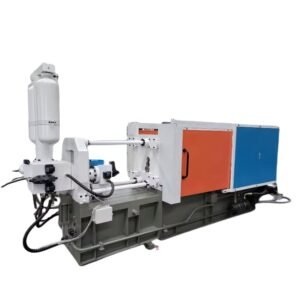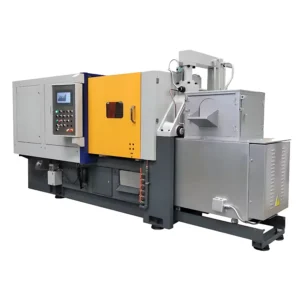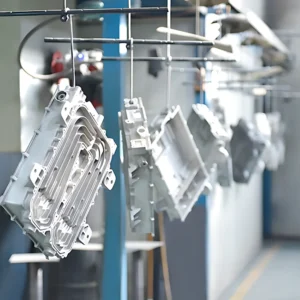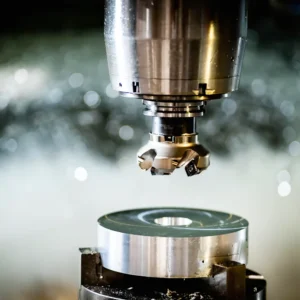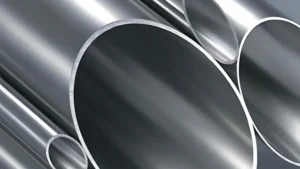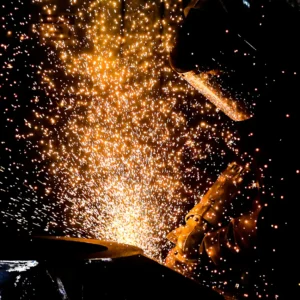While technologies such as 3D printing have improved, the CNC machining process remains one of the most cost-effective ways to manufacture items on demand. CNC machining can be used to process a variety of materials in large quantities at a lower cost. However, some customers may find it difficult to calculate the cost of CNC machining due to a variety of different factors.
This article will explain the factors that a machine shop will consider before calculating the cost. To fit your budget, we will also give you great ideas on how to reduce these costs. Read on for these helpful tips.
Related read: CNC Machine vs 3D Printer
Factors Affecting CNC Machining Costs
Before you can figure out how to reduce the CNC machining cost, you need to know what all the factors are that will affect its price. Machinists consider the following factors when calculating the cost of CNC machining:
Material
Material is a very important factor that machinists consider when calculating the cost of CNC machining. When using a CNC machine, the material is cut off because it has to be cut off. Therefore it tends to use more material than on the finished product.
The amount of material needed is calculated by the machinist and they will buy these in blocks. Molds made from metal and plastic are two common materials used in CNC machining. Let us take a closer look at these two materials.
Metals
6061 aluminum, 303 stainless steel, and C360 brass are some of the most commonly used metals in CNC machining. In most cases, machinists use 6061 aluminum because it is cheaper and easier to machine. 303 stainless steel and C360 brass are easier to machine but also cost more.
Plastics
Plastics are less expensive for CNC machining. This is due to the lower hardness of plastics and the shorter time required for the process. Plastics such as ABS, nylon, and POM (Delrin) cost about the same in bulk as 6061 aluminum. Plastics such as PEEK are expensive and are used only when needed.

Machining Costs
The cost of CNC machining also varies depending on the type of machine used. For CNC machining, two main types of machines are used: multi-axis and three-axis machines. In Europe, the cost of a 3-axis machine is about $35 to $40 per hour and the cost of a multi-axis machine is about $75 to $120 per hour.
But you can buy CNC machining services at a much lower price from Chinese companies like China Casting Synergy Group. The machine parts are in bulk for $8 to $10 per hour with three-axis machines and $30 per hour with multi-axis machines.
The price of the machine and the amount of time the machine runs in a year (about 5,000 hours on average) are two other factors that affect machining costs. The machinist divides the price of the machine tool by the number of hours it is used per year to calculate the machining cost of the machine (also known as the machining cost per hour).
This table compares the prices of various types of CNC machines, highlighting their primary use and approximate price range in USD.
| CNC Machine Type | Description | Approximate Price Range (USD) |
|---|---|---|
| CNC Milling Machine | Used for cutting and drilling operations on metal | $10,000 – $60,000 |
| CNC Lathe | Primarily used for turning operations | $15,000 – $45,000 |
| CNC Router | Ideal for cutting softer materials like wood | $3,000 – $20,000 |
| CNC Plasma Cutter | Used for cutting metal and other materials | $8,000 – $30,000 |
| CNC Laser Cutter | Precision cutting tool for various materials | $10,000 – $70,000 |
| 5-Axis CNC Machine | Advanced machine for complex geometries | $75,000 – $250,000 |
| CNC Swiss Machine | Specialized for precision and complex parts | $30,000 – $100,000 |
| CNC Grinding Machine | Used for finishing operations | $20,000 – $80,000 |
Labor Costs
Since CNC machining works primarily with computer-controlled machine tools, there are no significant employee costs. The main labor cost is the design and digitizing work of the designer. There are three main types of labor prices in CNC machining:
CNC Programming Design
This part of the labor cost is the most expensive due to the need to design and digitize the part before machining it. The designer needs to design the product and convert it into a CAD file. Of course, you can skip this step and do it yourself.
Next comes the manufacturing engineer, whose job it is to make sure your plans can be made over and over again and to give you ideas for improvements. Finally, there are the programmers. They convert the CAD files into CAM files so that the CNC machine can understand the design. There is a cost associated with this specialized skill.
Setup
This part of the operation requires the machine operator to do the setup. He spends a lot of time getting the machine ready for custom CNC work and making sure that everything operates correctly so that the job gets done. The amount of setup cost depends on how many parts need to be made. If many parts are machined at one time, the cost of each part is spread over many parts, so the cost per part is lower.
Post-processing
After production is complete, you may need to put the product together and ship it to where you want it. You may also need to apply special treatment to the processed parts. All these steps require some labor, so the cost will increase.
Other Aspects
In addition to the several influencing factors mentioned above, some other factors may affect the cost of CNC machining.
Molds
For some customized CNC machined parts, the job shop may need to buy special tool heads to make them. You may have to pay part of the machine cost, but the tooling will remain in the machine shop after the job is completed. This is because the tools may wear out during production, especially if the raw material is very hard.
Surface Finishing
Surface finishes can make CNC-machined parts look better and make them more resistant to harsh environments. Although these surface finishes are helpful, they can make the machining process more expensive.
All of these factors should be taken into account when calculating the cost of a CNC machine. Read the next section to learn how you can further reduce costs.
How to Reduce the Cost of CNC Machining
When people calculate the cost of CNC machining, they usually find the numbers a bit on the high side. This is especially true if they are producing a small number of products. There are several ways you can change the cost of CNC machining to suit your budget.
Reconsider Materials
The cost of CNC machining depends a lot on the materials you choose for your project. Before choosing a material for fabrication, you should consider how much it will cost. It is also important that the material is easy to machine. This will affect the time required for machining, which in turn will affect your hourly rate for the CNC machine shop production process.
Improved Design
The design of the manufacturing method is also very important when calculating the cost of CNC machining. The length of the machining time as well as the price depends on the complexity of the design. Before sending in your idea for a quotation, you can make it as simple as possible by considering the following questions:
- Are the parts needed for the project easy to machine?
- Are all the features in the model needed? Can any of these features be removed or simplified so that my part will still work?
- Is it possible to break down my design into parts that are easy to machine on a CNC machine and put them together?
- Is there a way to alter my plans so that I don’t have to set up my machine multiple times or buy special tools?
- Is there a material that will meet my design needs that is cheaper or easier to machine?
We at China Casting Synergy Group can also provide you with expert fabrication advice. A team of dozens of experts is ready to help you with any aspect of the production process.

Project Outsourcing
Another good way to reduce CNC machining costs is to outsource your project. However, outsourcing projects to CNC machining companies in developed countries is very expensive. On the other hand, Chinese companies can provide the same quality at a much lower price. Below we have listed the prices in these two regions:
Prices in Economically Developed Countries
Very often, CNC machining costs more in Europe because people live better there. In most cases, three-axis machines cost $35 to $40 per hour, while multi-axis machines cost $75 to $120 per hour.
Costs in Asian Countries
CNC machining costs in China are known to be very low, which is why many companies around the world outsource their projects to Chinese companies. a good example is China Casting Synergy Group, a Chinese company that promises to deliver high-quality products at a price that most people can afford. We have three-axis machines for $8 to $10 and multi-axis machines for $30.
The Best Way to do CNC Machining
Are you worried about how to get a quality CNC product at a price you can afford? Maybe you don’t know much about CNC and are looking for a company that makes great products. At China Casting Synergy Group, we offer the best CNC machining services.
We make it easy for you to calculate the cost of CNC machining. Our quick quote service allows you to get a quote almost immediately. We will look at your design and send you comments within 24 hours.
On the manufacturing side, China Casting Synergy Group has created a unified system that provides feedback and real-time updates. This way, you can be sure that we will get your product to you on time and in perfect condition.
Knowing the price and understanding how a CNC machine works will also help you.
Frequently Asked Questions
Is CNC Machining Costly?
The cost of a CNC machining job depends on the complexity of the project and the number of parts to be machined. Let’s say you want to make one part that costs $2 for machining and materials and $200 for setup. However, if you make 200 parts, each part will cost $3!
Which Materials Are Best for CNC Machining?
When you use a CNC to make items, the best material depends on what you want to make. For example, if you need an inexpensive material that is easy to machine, aluminum 6061 is the best choice. But if you don’t mind the price and need a metal that is easier to machine, then brass C360 is the best metal to use.
How Much Does a 3-axis CNC Machine Cost Per Hour?
Operating a 3-axis CNC milling machine typically incurs a cost of about $40 per hour. If you’re considering more advanced models, such as the 4-axis or 5-axis CNC machines, the hourly rates can increase significantly, ranging from $75 to $120. This variation in cost is largely due to the complexity of the tasks these machines can perform, with more axes allowing for more intricate and detailed work. Additionally, the desired finish—whether you’re opting for a rough cut or a fine, smooth finish—can also influence the overall cost. It’s important to note that these prices do not include the cost of materials, which will be an additional charge for the client.

